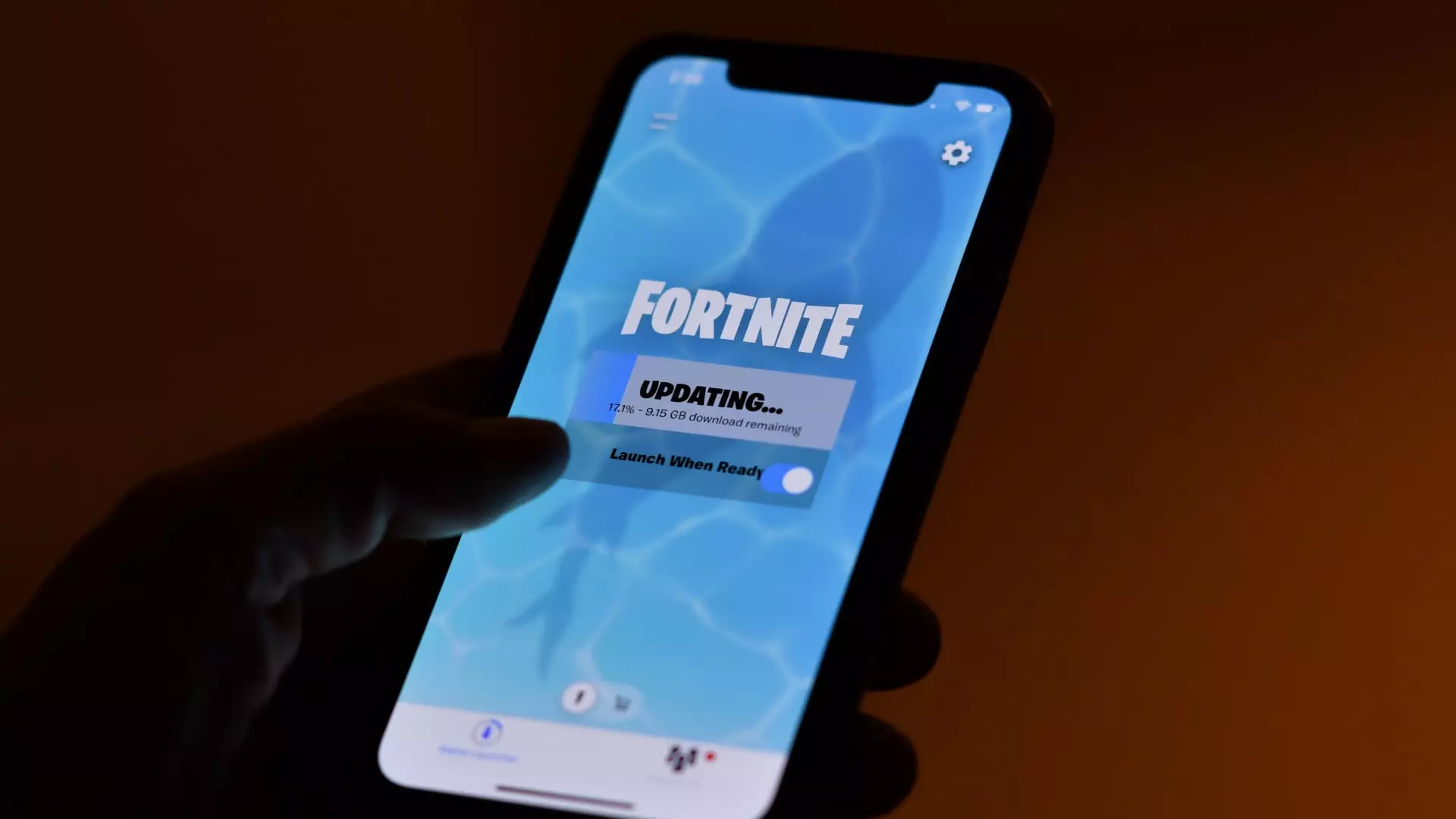The legal feud between Epic Games and Apple has captured the attention of the tech world, particularly since it has profound ramifications for how digital marketplaces operate. It all began in 2020 when Epic introduced a direct payment system in its wildly popular game, Fortnite, which directly challenged Apple’s control over its App Store. This move prompted Apple to pull Fortnite from its platform, sparking a lengthy litigation process that exposed significant flaws in industry practices. The case is no longer just about one game; it has morphed into a vital discussion on competition, consumer rights, and the very future of app distribution.
While Apple may seem like a juggernaut, its recent legal limelight reveals that it is not immune to scrutiny. The U.S. District Court, presided over by Judge Yvonne Gonzalez Rogers, has made it clear that Apple cannot simply overlook its obligations. The court’s insistence on Apple proving its legal basis for delaying Fortnite’s reinstatement isn’t merely procedural; it indicates a growing impatience with Apple’s monopolistic tendencies. By allowing Apple to flout legal rulings without consequence, we risk entrenching a system that suppresses competition and innovation.
Epic Games’ Stance: A Fight for Fairness
Epic Games, under the leadership of its outspoken CEO Tim Sweeney, is not playing defensively. Instead, they perceive their struggle as a broader fight for fairness within the digital ecosystem. The company’s latest motions to enforce prior injunctions demonstrate a commitment to holding Apple accountable, but it also exposes the limping pace of judicial processes. Sweeney’s assertions that Apple has opted to ignore Fortnite’s resubmission rather than formally reviewing it reflect a deep-seated frustration that resonates with fellow developers who feel trapped under Apple’s stringent policies.
The narrative here isn’t merely about one game becoming available again; it’s about the rights of developers to market their products without facing exorbitant fees or unfair restrictions. This is pivotal for emerging developers who could be stifled by an organization that holds the keys to a lucrative marketplace. The vision embraced by Epic—where developers can differentiate themselves—is at serious risk if Apple continues its monopolistic practices unchecked.
The Court’s Role in Protecting Competition
Judge Rogers’ directive that Apple needs to demonstrate the legal reasoning behind its refusal to act on Fortnite’s resubmission is critical. If Apple is indeed “fully capable of resolving this issue without further briefing,” as noted by the judge, why is it choosing not to? The court’s role becomes increasingly significant in safeguarding competitive dynamics in technology, especially when the lines between legality and business interests blur. The forthcoming hearing, scheduled for May 27, may be a crucial turning point where the court can reinforce its authority and prompt Apple to comply.
Moreover, the judge’s comments about Apple needing to bring a responsible corporate representative into court speak volumes. There is a palpable need for transparency and accountability at the highest levels of corporate governance. This situation raises the question of whether tech giants are willing to change course in response to judicial rulings or remain entrenched in old patterns of behavior.
The Ripple Effect Across the Industry
The ramifications of this dispute stretch beyond Epic Games and Apple. Other prominent platforms, like Spotify and Amazon Kindle, have recently adapted their app offerings to comply with California’s legal requirements after the ruling. This trend suggests that Epic’s pursuit of justice may embolden other developers to stand up against monopoly practices, leading to a more equitable digital landscape.
In this evolving saga, it will be interesting to see how the outcomes influence customer experiences and developer relations in the App Store. If Apple is forced to enact more favorable policies towards developers, it could potentially reshape the playing field, encouraging innovation and fostering healthier competition within the industry.
While the outcomes of the upcoming hearings remain uncertain, one thing is clear: the outcome of the Epic Games vs. Apple case will have lasting implications for how digital marketplaces operate in the future. As consumers and developers alike watch this confrontation unfold, they may finally see the emergence of a more equitable digital era.


Leave a Reply